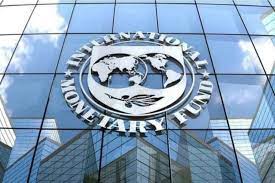In recent developments, the International Monetary Fund (IMF) staff team has announced a staff-level agreement with Ghana, which will enable the Board to approve an additional US$360 million for the country. This agreement is a significant milestone following the third review of Ghana’s ongoing US$3 billion loan-supported program aimed at economic recovery and debt sustainability. The announcement was made at the conclusion of a two-week review conducted from September 24 to October 4, 2024. According to the mission, Ghana’s overall performance under the three-year program has been deemed “satisfactory,” indicating that the country has made considerable strides in improving its economic conditions.
Stéphane Roudet, the Mission Chief for Ghana, highlighted that once the Executive Board review is completed, Ghana will access SDR 269.1 million (approximately US$360 million). This additional funding will raise the total IMF disbursements under the current arrangement to SDR 1,441 million (around US$1,920 million) since May 2023. Roudet noted that all end-June 2024 quantitative targets set by the IMF were met, and while some structural reforms experienced delays, substantial progress was still made. This positive outlook is crucial for fostering investor confidence and stabilizing the Ghanaian economy further.
The economic growth of Ghana in the first half of 2024 has exceeded initial expectations, with key sectors such as mining, construction, and information and communication technology driving this growth. The IMF report indicated a diversification of growth sources in these sectors during the second quarter and a continued decline in inflation rates, which reflects positively on the nation’s economic stability. Roudet praised the Bank of Ghana’s commitment to a tight monetary policy, emphasizing that this stance is instrumental in continuing the downward trend of inflation, which is essential for the country’s economic recovery.
Fiscal performance in 2024 has shown strength, with Ghana on track to achieve a primary surplus of 0.5 percent of GDP, despite facing pressuring factors such as recent spending demands due to droughts in the northern regions and challenges within the energy sector. This indicates the government’s resilience and ability to maintain fiscal discipline even in the face of adversity. Additionally, improvements in Ghana’s external sector were noted, attributed to robust gold exports, a lesser contribution from oil, and an increase in remittances, which have helped bolster the nation’s international reserves beyond the targets set in the program.
Despite the positive economic indicators, Roudet warned about potential risks due to a recent dry spell in northern Ghana, which could adversely affect agricultural productivity and subsequently constrain overall growth. This situation may also put pressure on food prices for the remainder of the year, posing challenges for the government and households. However, Roudet expressed confidence that the government’s policy responses could aid in alleviating these risks, showing an understanding of the complexities within the agricultural sector and the need for strategic intervention.
During the review, the IMF staff met with several key figures, including Ghana’s Finance Minister Dr. Mohammed Amin Adam and Dr. Ernest Addison, Governor of the Bank of Ghana, alongside their teams and representatives from other governmental agencies. This collaborative approach underscores the importance of inclusive dialogue and engagement among stakeholders in navigating Ghana’s economic landscape. Overall, the agreements and findings from the IMF indicate a cautious optimism about Ghana’s economic trajectory, underpinned by continued support from the international community and disciplined fiscal policies domestically.














